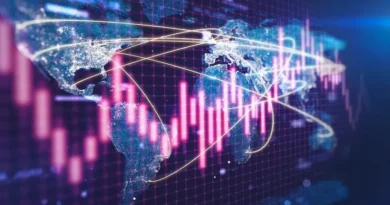Has Hamas speculated on the stock market against Israel? What's true
According to a study, some investors made millions through short selling operations carried out before the attacks on Israel.
In fact, a few days before October 7, there was a notable increase in bets against Israeli companies.
This would suggest that some traders were aware of the impending attacks and could capitalize on them.
The study, entitled “Trading on Terror?”, which highlights these dynamics, is the work of Robert J.
Jackson Jr.
(New York University School of Law) and Joshua Mitts (Columbia Law School) and has not yet been subject to review .
Not just any two professors.
Jackson is a former commissioner of the SEC, the American correspondent of our Consob, while Mitts specializes in the application of data science on research on corporate law and financial instruments.
The response from the Tel Aviv Stock Exchange, the Israeli stock exchange, was not long in coming, underlining that the study is imprecise and that, on the contrary, no suspicious transactions were recorded before the attacks.
Short selling boom against Israel before attacks According to the study, there was a “significant” and “unusual” increase in short selling.
These represent a method of betting against the value of a security, betting on the prediction that the price will fall and capitalizing when the decline occurs.
In other words, short selling is a trading strategy with the aim of taking advantage of the (expected) decline in the value of an asset.
The seller effectively borrows a security through an intermediary, selling it on the market to subsequently repurchase it at a reduced price, thus ensuring a profit generated by the difference between the sale price and the purchase price.
According to the study's authors, bets against the MSCI Israel ETF were significantly higher in the days leading up to October 7 than the amount of short selling seen during the 2008 global financial crisis, the 2014 Israel-Gaza war and the Covid-19 pandemic (source: CNN).
The Accusation: Some Made Millions by Short Selling “Our findings suggest that traders informed of the impending attacks profited from these tragic events,” the study reads.
Commenting, Jonathan Macey, a professor at Yale Law School, called the report "shocking." “The evidence is strong that informed traders profited by anticipating the October 7 terrorist attack,” he told CNN.
“Regulators appear to lack the ability to uncover the entities responsible for this trade, which is unfortunate.” The research states that on October 2, five days before Hamas' surprise attack on Israel, “nearly 100% of off-exchange trading volume on the MSCI ETF consisted of short selling.” “Days before the attack, traders seemed to anticipate events to come,” the authors write.
Joshua Mitts, one of the authors, told CNN how, due to the limited nature of public trading data, he believes it is "highly likely" that many trades occurred behind the scenes.
“What we see is just the tip of the iceberg,” Mitts said.
“There's a lot more out there that we can't grasp but that regulators should look at.” Was it Hamas that speculated on the market? However, nothing is certain about who carried out these operations.
“Linking it to Hamas is very speculative and we are not suffering from that,” Mitts explained, adding that there is a wide range of possibilities, including that someone “heard something” and acted on it.
Meanwhile, the Tel Aviv Stock Exchange said the authors miscalculated because stock prices are quoted in agorot – the Israeli currency equivalent of our cents – rather than shekels, estimating the potential profit of the aforementioned short sales at just 32 million shekels, just over 8 million euros.
In contrast, the Israel Regulatory Authority (ISA) said that no significant anomalies in trading activity were detected in the days before the Hamas terror attack that would require further investigation.
“ISA analysis found, among other things, that average short balances on stocks traded on the Tel-Aviv Stock Exchange decreased during the period leading up to October 7,” the regulator said in a Note.




